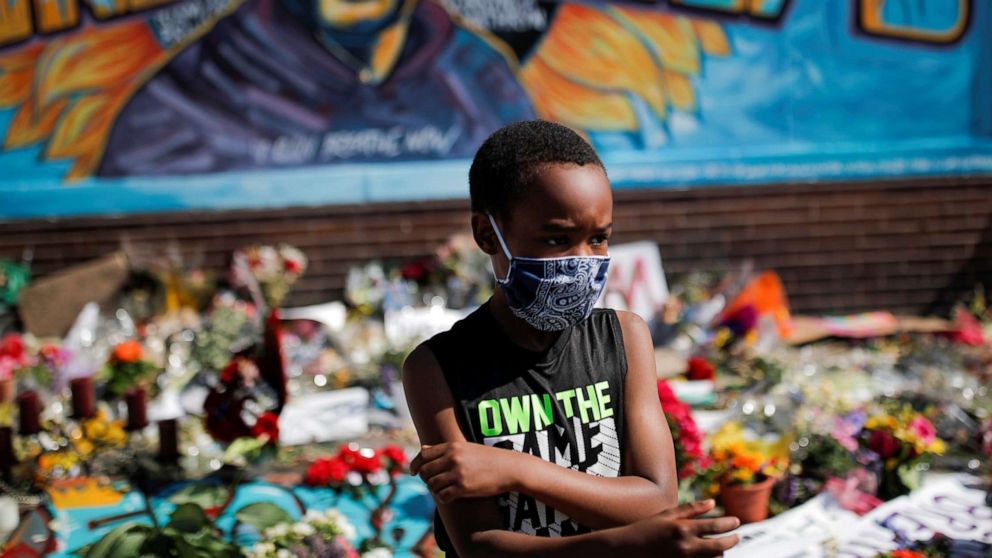What do you tell your children? Moms talk about raising their kids in racially turbulent times
The final cry on George Floyd’s lips was a call for his mother.
“It touched upon every fear that I have as a parent of black children,” Crystal McCrary McGuire told ABC Correspondent Deborah Roberts.
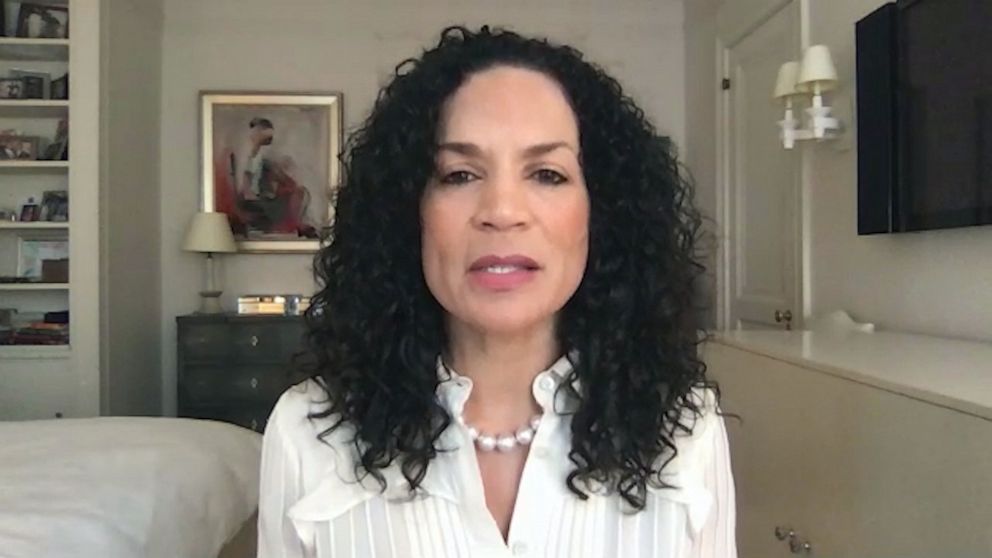
Those words unleashed a plaintive call to action and reflection for mothers all over America.
ABC News connected with four moms from across the country, all with different upbringings, all pained by conversations they’ve had, or will have with their sons and daughters. The four moms with diverse stories came together to talk about their shared, but differing experiences raising children in America.
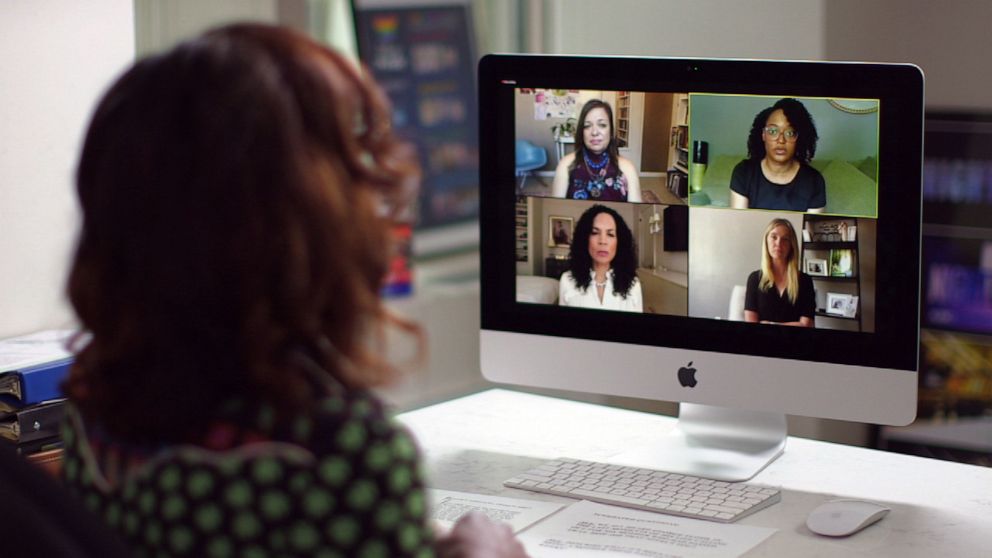
Chelsie Dort, who is white, is the mom of four, including three bi-racial children with her Haitan-American husband.
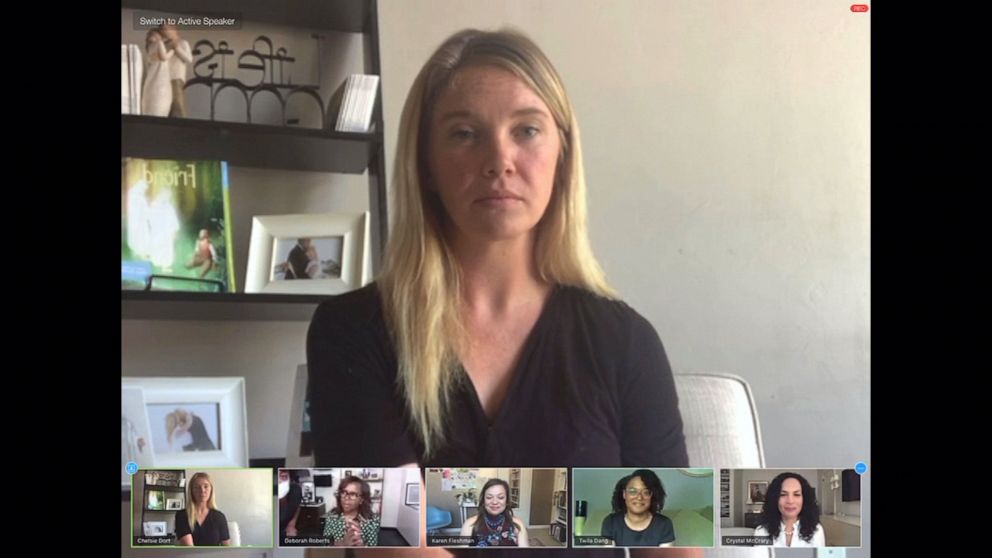
“It’s not something I ever thought I would need to be prepared to deal with,” Dort told ABC News.
Twila Dang, who is black, lives just miles away from where George Floyd took his last breath, she’s a mom of three and her son is just about to turn 17.
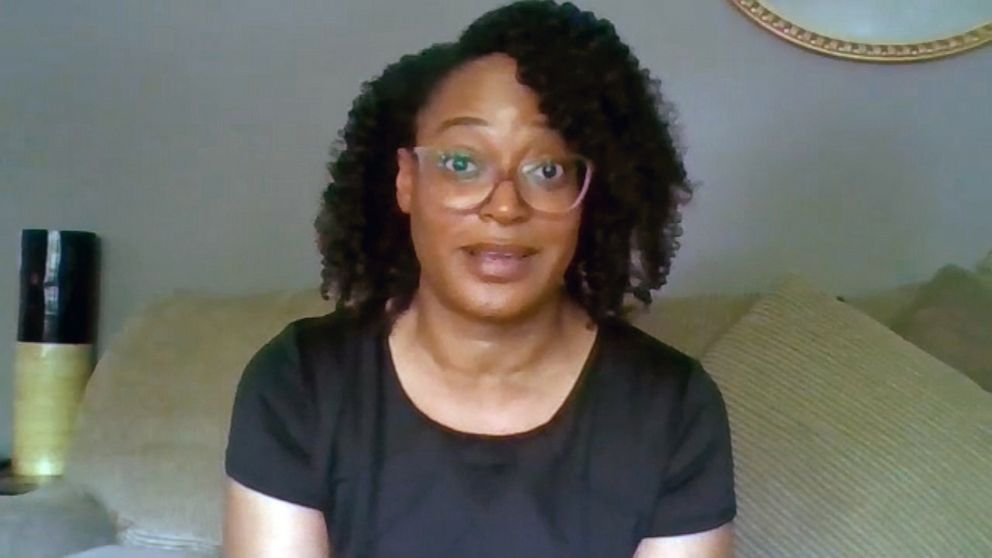
“All of this hits so close to home for us... we can have hard discussions, this is the safest place to do it, at home,” Dang said.
Across the country in San Francisco, Karen Fleshman, worries about the world her children are entering, and is trying to help them open their eyes to racial injustices.
“We are responsible for the education we give our children,” Fleshman, who is white from San Francisco and the mom of two biracial children whose father Asian-American told ABC News.
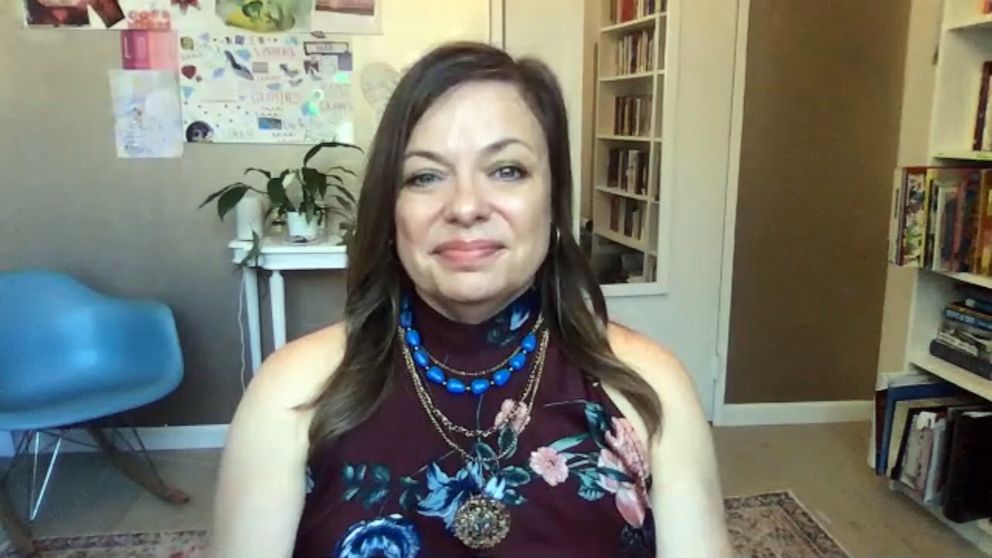
She vows to educate her son and daughter in a way she never was.
“Anything I had learned about racism growing up was harmful and inaccurate and I was part of the problem,” Fleshman said.
Meanwhile, McCrary Mcguire, who is black, worries about her daughter and her two sons: Cole, 20, is a point guard at the University of North Carolina who hopes to be drafted by an NBA team later this year.
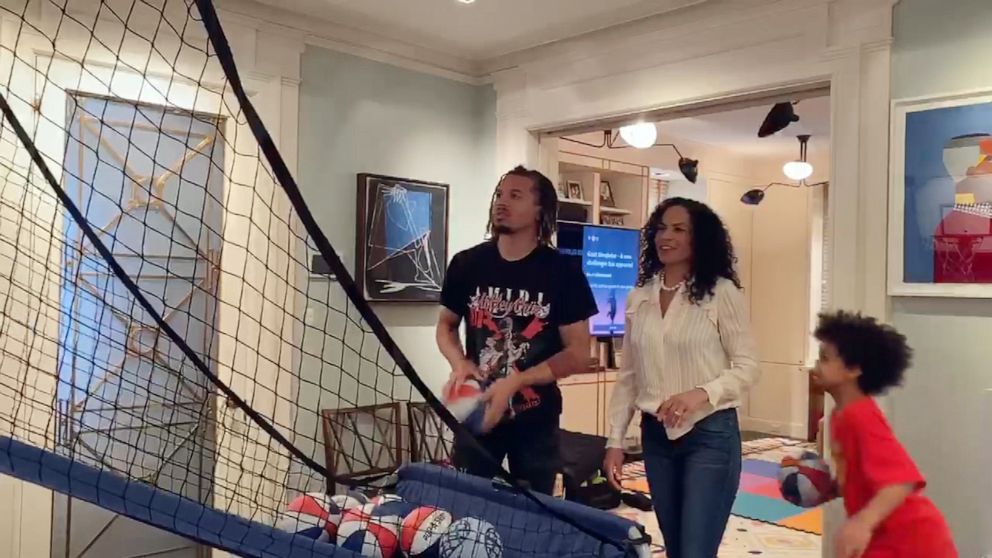
“There’s something about black bodies and black skin that too many, not all, but too many people in society view as a threat,” she said.
That idea-- of black bodies and skin being viewed as a threat, is so potent, that it moved Lauryn Whitney, who is black, to take to social media.
In a Youtube Video she asked simply: “I dare you. Ask yourself when did my baby become a threat to you?”
In that video-- babies, children, young adults and grown men all responded.
Dort says images like those break her, and make her scared of the world her young children are becoming more aware of by the day.
“My children will identify as mostly black... and I can’t be naive to the fact... someday my five year old won’t have like a tiny five year old face anymore... he’s not going to have, like, tiny little hands, he’s going to be a grown man,” she said.
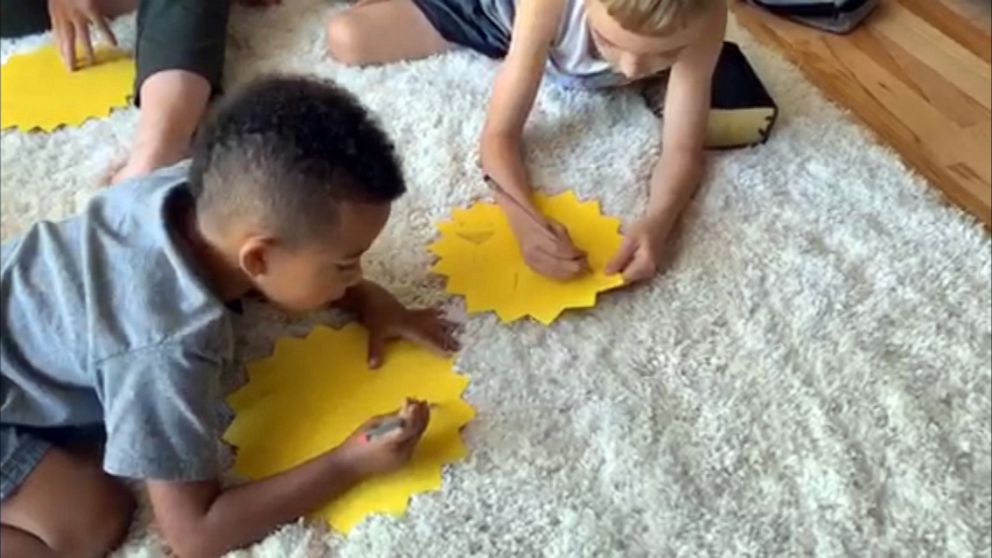
She thinks every day about her role as a parent, “so what I can do as a white mother to brown children that are growing up in America and how I can support them,” Dort added.
Near Minneapolis, Dang is trying to support her children by making sure they know their home is a space they can feel comfortable having tough conversations, “They need a place to ask really difficult questions. They know it is safe to do that here,” she said.
As kids grow older, as parents, the concerns only seem to grow.
‘I’m not going to feel good until I see you walk through my door. I’m not going to feel good until I know I have eyes on you. And you didn’t have a run in with a police officer,” Dang said.
More than a thousand miles away in New York City, McCrary McGuire shared similar concerns about her teenagers--who are growing up before her eyes.
McCrary McGuire’s daughter has been at the protests this week, “we will not have change if our youth do not get out there and demand it,” she said.
That change is part of what Fleshman is demanding of other white mothers.
“I'd like to talk directly, if I could to white mothers. I hope you are hearing these black mothers pain only we see white mothers can heal this black mother's pain only we white mothers can hear these black mothers' pain by raising better white children,” she said.
Dort agreed, for her as a white mom, it is a learning experience every single day.
“My intention is always to say the right thing and to be on the right side of things and to, you know, make sure that I'm an advocate and I'm a part of the solution. But I think that in the process of learning those things and trying to grow in that way I still often say things that maybe get taken in a [perceived] wrong way," she said.
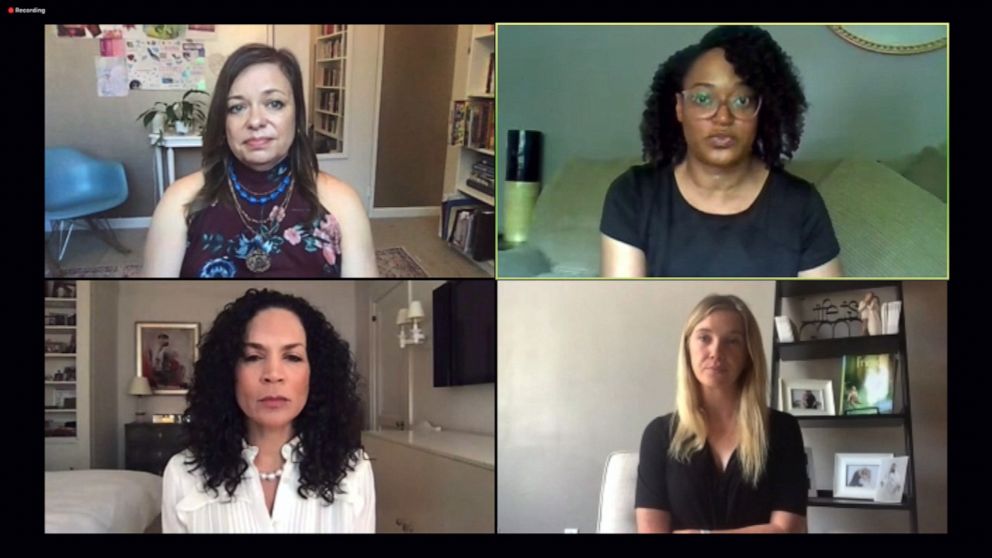
The moms hope conversations like these become more frequent, and help to educate and enlighten others still searching for a path forward on the long winding road ahead.
“I am worried, but I'm very hopeful. And this is a long overdue reckoning, and this is taxation without representation and young people waking up and saying we are not putting up with this anymore,” Fleshman said.
“If I need motivation, I'll just walk around this house and find the three humans I gave birth to. That's enough motivation for me to work harder to do whatever is necessary... I'm tired, but I know it's a marathon, not a sprint,” Dang added.
"I feel terrified and a little overwhelmed, but I am grateful for the opportunity for me to grow and be better,” Dort said.
“I feel anger. And frustration. But I also feel like this is a call to action. Where the truth will rise to the top. And I do believe that we are on the side of the truth,” McCrary Mcguire said.
